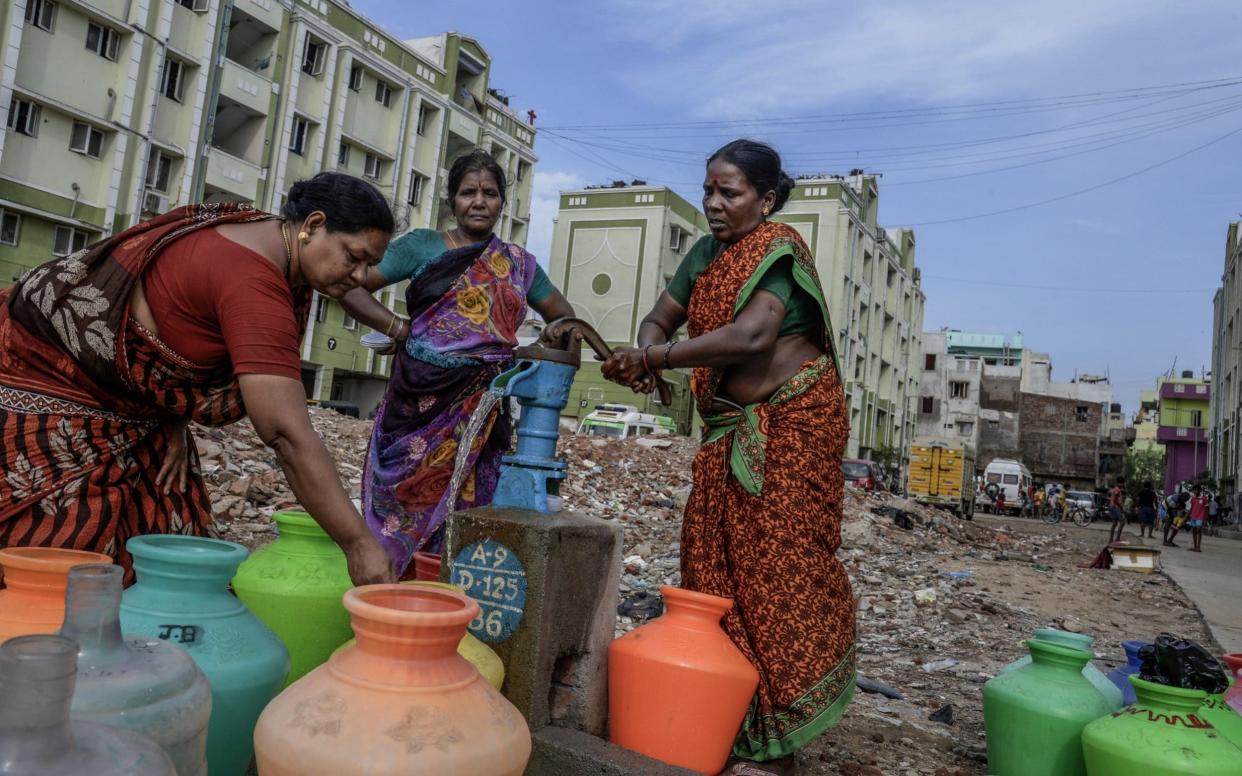UK must spend more on water and sanitation to help lift everyone out of poverty

As we look to Britain’s position in the world after we leave the European Union, there has been much debate about the role of our overseas aid budget. UK aid - supported by all but the fringes of UK politics - enhances our standing overseas and is something we should be proud of.
But it does have room for improvement, and we must always seek to maximise its impact. The aim of the 0.7 per cent of our national income allocated to UK aid is to eradicate poverty.
But it fails to sufficiently prioritise one area that is an essential element in escaping poverty – providing clean water, decent sanitation and good hygiene (WASH).
Without these three basic human rights, escaping poverty is nearly impossible. Yet despite this, only two per cent of our foreign aid budget is invested in ensuring everyone, everywhere has clean water and decent sanitation.
With little over a decade to go to meet the United Nations Sustainable Development Goals, the world is woefully behind schedule. One in ten people still do not have a clean water source nearby and one in four do not have a decent toilet.

Ambition remains high, but without a dramatic shift in progress, goal six of universal access to water and sanitation will be missed, in some countries by centuries. Investing in WASH achieves phenomenal economic and social returns.
Every pound spent on water, sanitation and hygiene delivers at least a £4 return in increased productivity. This week the UN reviews its progress against meeting the SDGs, and the UK’s record will be under the spotlight.
The UK’s past commitment to WASH provision in developing countries should be praised – 80 million people have gained access to water and sanitation since 2011 through programmes directly supported by UK aid.
But the current situation is less positive with programmes scaled back in countries such as Malawi and Tanzania. The level of ambition set out in the UK’s voluntary review of progress against the SDGs was hugely disappointing.
It failed to set out a vision for how the UK will step up its commitment to getting decent water, sanitation and hygiene to everyone by 2030. The Department for International Development has told us that it does prioritise water, sanitation and hygiene provision - including integrating WASH into health or education policies.
But its actions do not bear this out, and UK spending does not come close to matching the scale of the problem.

This lack of prioritisation flies in the face of signals from leaders in India, Pakistan and Nigeria who recognise the key role WASH has to play in a country’s development. They have raised the issue of water and sanitation at the highest political forums, declared national emergencies and committed to urgent action.
Increased investment from the UK would help make these pledges a reality much faster. Other sectors have much bigger slices of the budget – 15 per cent goes to health and nine per cent to education.
Both are clearly crucial to a country’s development, but can we really claim that the one third of both schools and hospitals in low income countries without water provide quality healthcare or education?
By increasing the amount spent on water and sanitation, healthcare facilities would be safer, hospital infections could be contained more effectively, and the millions of school days currently lost to illness restored. And it is those furthest behind and the most marginalised who would gain the most.

Not having clean water and decent toilets disproportionately affects women and girls, their time spent collecting water rather than in education, and their days limiting what they eat and drink so that they don’t have to use unsafe sanitation facilities.
We have rightfully seen the UK commit to making gender equality a reality through Dfid’s recent strategy on gender equality, but here water and sanitation issues were largely excluded. The magnitude of the crisis requires a comparable response – there can be no end to poverty without everyone having a tap, toilet and somewhere to keep clean.
By increasing the funding available for this and Dfid using its considerable clout to encourage other actors to invest as well, the UK can regain its position as a leader. Without health, education and WASH, human development is impossible.
Good provision of all three paves the way to a future in which overseas development assistance is no longer needed. But too few people currently have water, toilets or good hygiene to make this, or any of the SDGs a reality. If we act now and act with urgency and focus we have the greatest opportunity to change the situation and the most to gain. The UK can, and must, do better.
Tim Wainwright is chief executive of WaterAid
Protect yourself and your family by learning more about Global Health Security

 Yahoo News
Yahoo News 
